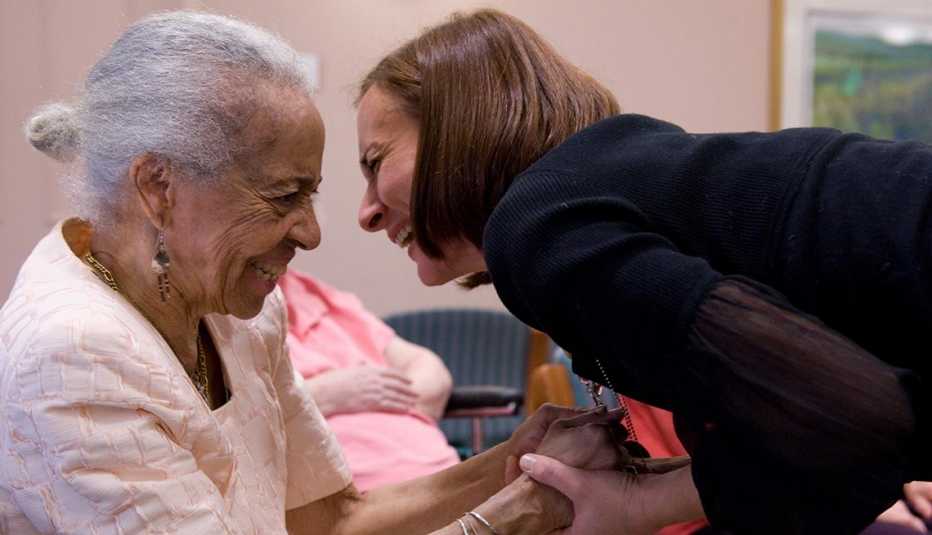Staying Fit


Alzheimer’s disease and other dementias will cost the United States $236 billion this year, according to the Alzheimer’s Association.
But research being presented this week at the Alzheimer’s Association International Conference (AAIC) in Toronto suggests costs could be trimmed if patients were more closely monitored by physicians and caregivers.


AARP Membership— $12 for your first year when you sign up for Automatic Renewal
Get instant access to members-only products and hundreds of discounts, a free second membership, and a subscription to AARP the Magazine.
“Today, Alzheimer’s is incurable and progressive, and some assume that treating dementia is an unjustified cost drain on our health-care system, but this study presents compelling arguments for prescribing the standard of care,” Maria Carrillo, chief science officer of the Alzheimer’s Association, said in a press release about a new comparison of treated versus untreated patients.
The study found that patients who received medications to alleviate some of the symptoms of Alzheimer’s incurred lower total health care costs and had a lower risk of dying, although that probably was not because of the drugs but because they more likely had doctors and caregivers paying attention to their health, researchers said.
Researchers from Merck, the pharmaceutical company, looked at the impact of treating newly diagnosed Alzheimer’s patients with one of four available medications. (Merck does not market any of the treatments but is testing the effectiveness of an experimental Alzheimer’s medication called Verubecestat.)
They identified a total of 6,553 Medicare beneficiaries who had just been diagnosed with Alzheimer’s. About 35 percent of them were treated with one of the four drugs, on average 34 days after their diagnosis. Two-thirds of those treated received donepezil, the generic name for Aricept, which has been on the U.S. market the longest of all the Alzheimer’s drugs.
Untreated patients tended to be older and sicker with other ailments than the treated patients, the researchers found. For an apples-to-apples comparison, the scientists matched treated with untreated patients on the basis of demographic factors such as age and health status.
The study found that among the 694 impaired patients, those who were treated were less likely to die and had lower monthly total health care costs than those who were not treated.
It’s unlikely the medications themselves deserve much credit, study coauthor Christopher Black of the Merck Research Laboratories told AARP.

































































More From AARP
Regular Internet Use May Be Good for the Brain
A new study suggests link between dementia and internet use
Best Superfoods for Your Brain
These delicious foods stand out for boosting memory, cognition and more
5 Brain-Boosting Exercises
Physical activity can boost memory, improve thinking, even lower dementia risks — and it’s not too late to start